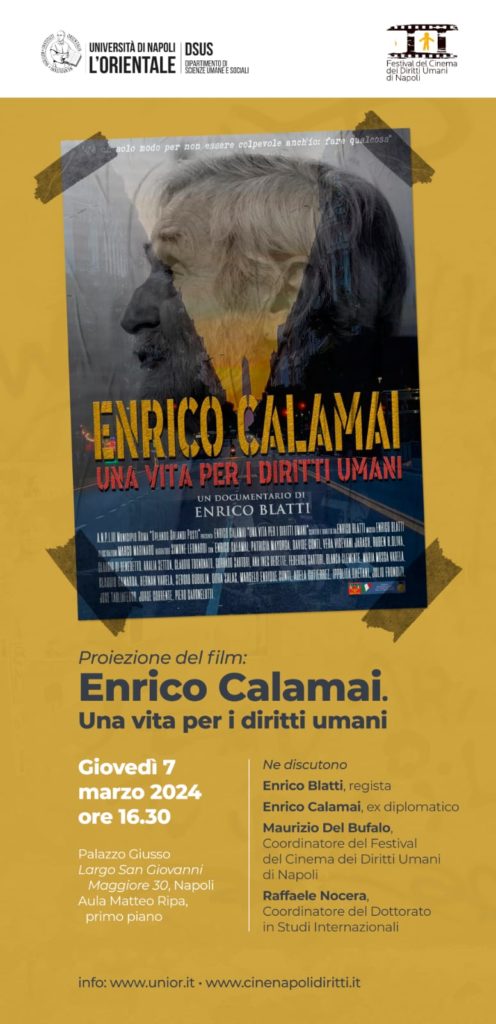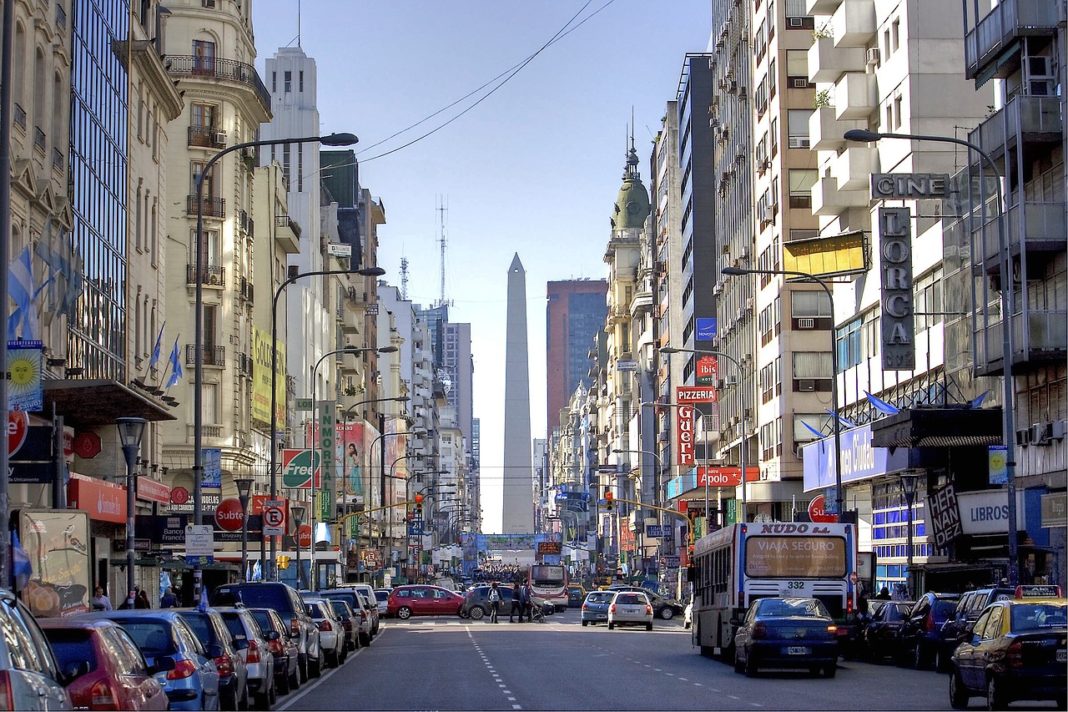Al Festival del Cinema dei Diritti Umani di Napoli si torna a parlare di desaparecidos. L’Argentina, sempre centrale nella rassegna, offrirà lo spunto per la prima napoletana del film “Enrico Calamai, una vita per i diritti umani”, alla presenza del regista Enrico Blatti e del protagonista. L’appuntamento per la proiezione e il successivo dibattito è per giovedì 7 marzo nell’aula Matteo Ripa di palazzo Giusso, sede dell’Università Orientale di Napoli, a partire dalle 16.30.
Il documentario al centro dell’evento racconta la vicenda, umana e professionale, di Enrico Calamai, viceconsole dell’Ambasciata italiana a Buenos Aires durante la dittatura militare in Argentina (1976-83), che, con il suo coraggio e la sua umanità, scelse di disobbedire agli ordini dell’allora ministro degli esteri, Giulio Andreotti, salvando centinaia di vite umane, rifiutando di chiudere le porte dell’ambasciata e di respingere le richieste di aiuto dei perseguitati.
Spiegano gli organizzatori: «L’opera cinematografica, ricca di testimonianze ed emozioni, si rivela particolarmente ricca di senso in un momento storico caratterizzato da tensioni internazionali e da una diffusa violazione dei principi fondamentali dei Diritti Umani. Non mancheranno neppure alcune riflessioni sulla storia recente dell’Argentina, oggi governata dall’anarco-liberista Javier Milei, che sembra di nuovo sull’abisso del collasso finanziario e democratico».
Il dibattito sarà guidato da Raffaele Nocera, coordinatore del dottorato in studi internazionali dell’Orientale, e Maurizio del Bufalo, anima del Festival partenopeo.
L’Università come luogo di incontro tra i testimoni e i giovani: il pubblico so confronta con una storia che rappresenta un monito per le generazioni future e per coloro che dimenticano che guerra e violenza sono sempre pronte a tornare sulla scena delle nostre esistenze. Un’occasione, questa, per interrogarci senza mediazioni e tregue.
Nella foto in alto, Buenos Aires da Pixabay
Naples Human Rights Film Festival / Argentina: The courage of Enrico Calamai, the vice-consul who saved so many people persecuted by the dictatorship

The Naples Human Rights Film Festival is back to talk about desaparecidos. Argentina, always central to the festival, will offer the occasion for the Neapolitan premiere of the film “Enrico Calamai, a life for human rights,” in the presence of director Enrico Blatti and the main character. The appointment for the screening and ensuing discussion is for Thursday, March 7, in the Matteo Ripa lecture hall of Palazzo Giusso, home of the Oriental University of Naples, starting at 4:30 p.m.
The documentary at the center of the event recounts the human and professional story of Enrico Calamai, vice-consul of the Italian Embassy in Buenos Aires during the military dictatorship in Argentina (1976-83), who, with his courage and humanity, chose to disobey the orders of the then foreign minister, Giulio Andreotti, saving hundreds of lives by refusing to close the embassy doors and rejecting requests for help from the persecuted.
The organizers explain,”The film, full of testimonies and emotions, is especially rich in meaning now in a historical moment characterized by international tensions and widespread violation of the basic principles of Human Rights. There will also be no lack of reflections on the recent history of Argentina, now ruled by the anarcho-liberal Javier Milei, which again seems to be on the brink of financial and democratic collapse.”
The debate will be led by Raffaele Nocera, coordinator of the doctoral program in international studies at Orientale, and Maurizio del Bufalo, core of the Neapolitan Festival.
The university as a meeting place between witnesses and young people: the public is thus confronted with a history that is a warning to future generations and to those who forget that war and violence are always ready to return to the scene of our existence. An opportunity, this one, to question ourselves without mediation or truce.










